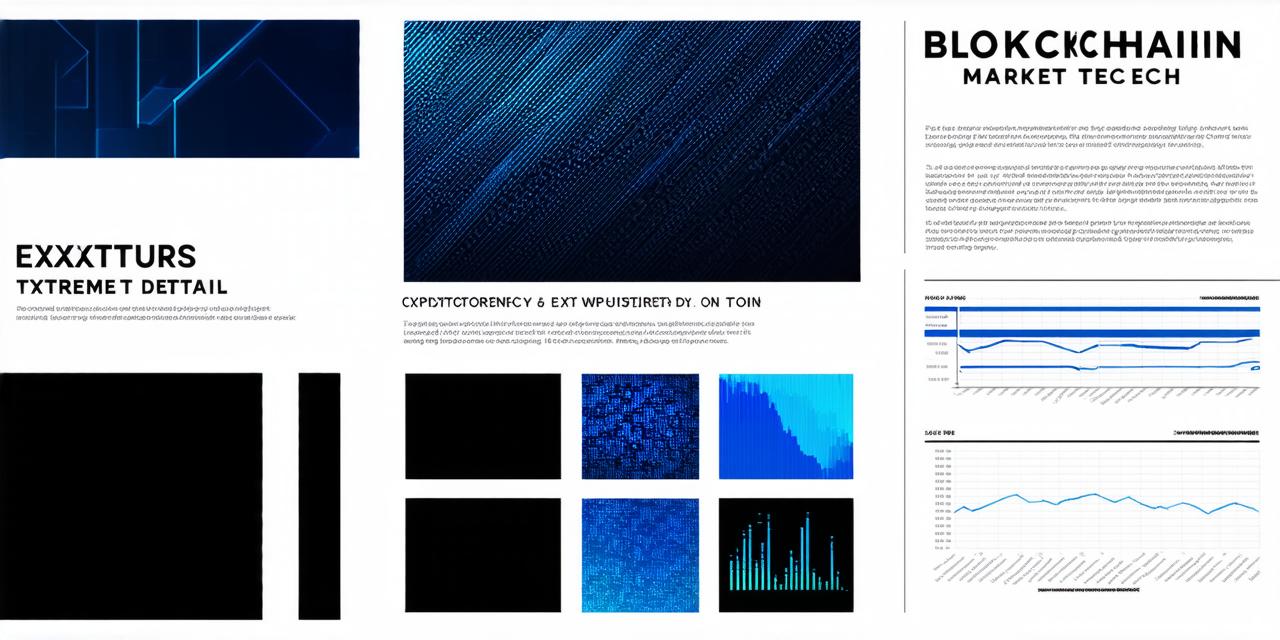Blockchain technology has been gaining traction in recent years as more and more businesses seek to capitalize on its potential benefits. At its core, blockchain is a decentralized, distributed ledger that allows for secure and transparent transactions without the need for intermediaries.
What is Blockchain?
Before diving into the blockchain market, it’s important to understand what blockchain technology is. At its core, a blockchain is a distributed ledger that records transactions across a network of computers. Each block in the chain contains a record of multiple transactions and is cryptographically linked to the previous block, creating an immutable and tamper-proof record.
One of the key benefits of blockchain technology is its ability to eliminate intermediaries, making transactions faster, more secure, and less expensive. Blockchain can also enhance transparency and accountability, as all participants have access to a shared ledger that records every transaction.
The Evolution of the Blockchain Market
The blockchain market has come a long way since its inception. In 2008, the first bitcoin was mined by an unknown individual or group using a powerful computer. Since then, the cryptocurrency market has grown exponentially, with thousands of different types of digital currencies now available.
However, the blockchain market is not just limited to cryptocurrencies. It has also found applications in other industries, such as supply chain management, voting systems, and identity verification. In fact, the global blockchain market is expected to reach $39 billion by 2025, growing at a CAGR of 57.6% from 2020 to 2025.
Key Trends in the Blockchain Market

There are several key trends shaping the blockchain market today. One of the most significant is the increasing adoption of blockchain technology by traditional industries such as finance, healthcare, and government. For example, many financial institutions are now using blockchain to speed up payments processing and reduce costs. In addition, blockchain technology is being explored for use in voting systems, as it can provide transparency and security while also enhancing accessibility.
Another trend is the growth of decentralized applications (dApps) built on top of blockchain technology. These applications allow users to interact directly with the blockchain without the need for intermediaries, providing greater control and autonomy. Some popular dApps include decentralized exchanges, lending platforms, and gaming systems.
Challenges Facing the Blockchain Market
Despite its many potential benefits, the blockchain market is not without its challenges. One of the biggest obstacles facing this industry is scalability. While blockchain technology can handle a large number of transactions, it can struggle to process them quickly and efficiently as the network grows. This has led to issues with high transaction fees and long confirmation times for some users.
Another challenge is security. While blockchain technology is generally considered secure, there have been instances where hackers have successfully stolen cryptocurrencies from exchanges and other platforms. In addition, the decentralized nature of the blockchain makes it difficult to track down and prosecute criminals who engage in illegal activities on the network.
Case Studies: Real-Life Examples of Blockchain Technology in Action
To better understand the potential of blockchain technology, let’s look at some real-life examples of how it is being used today.
One example is Walmart, which has implemented a blockchain-based system to track the movement of food products from farm to shelf.
